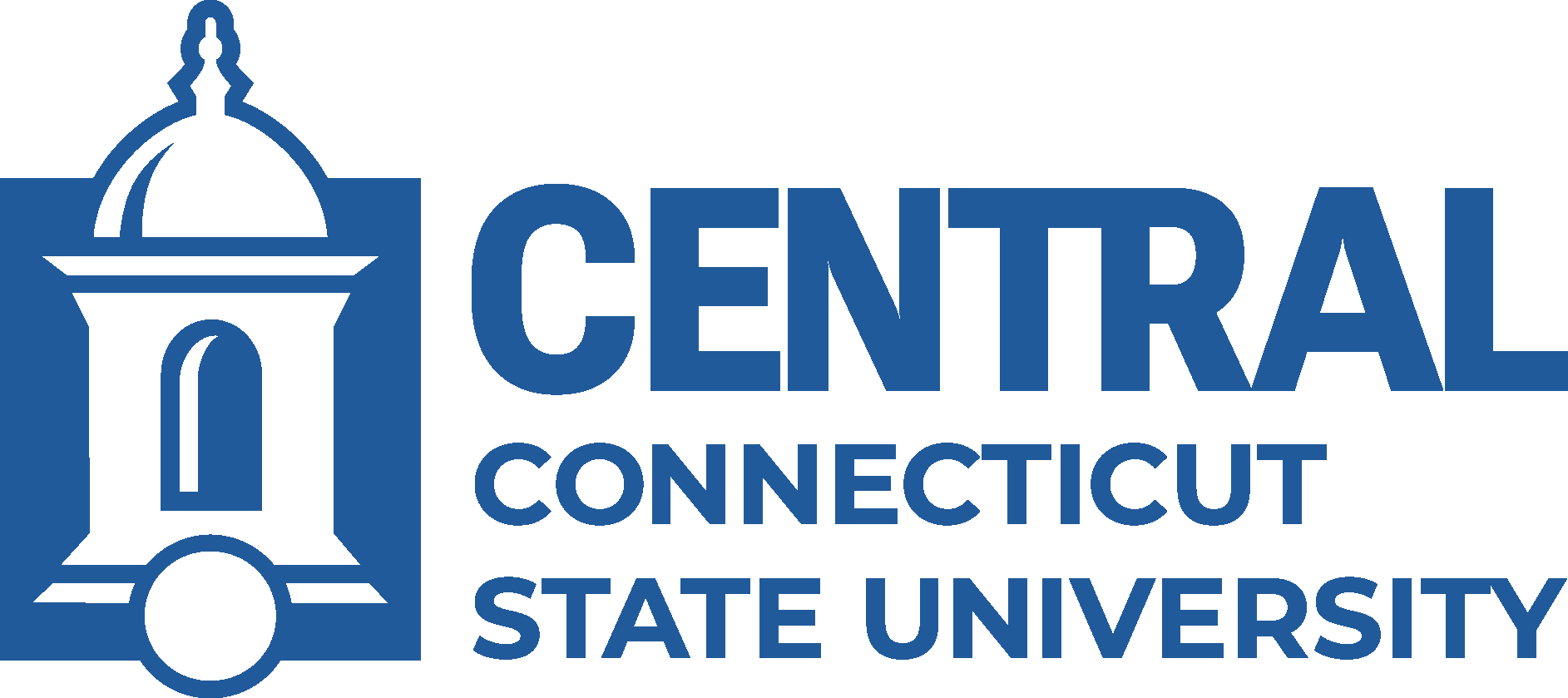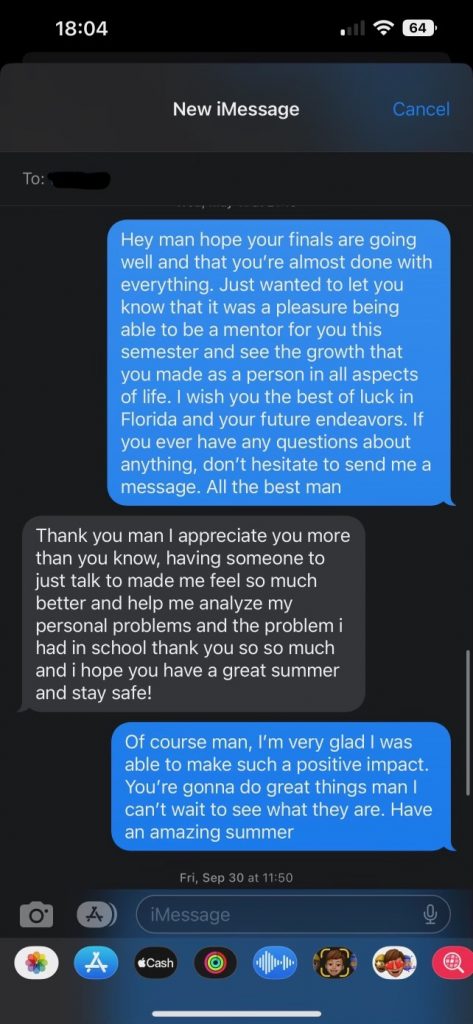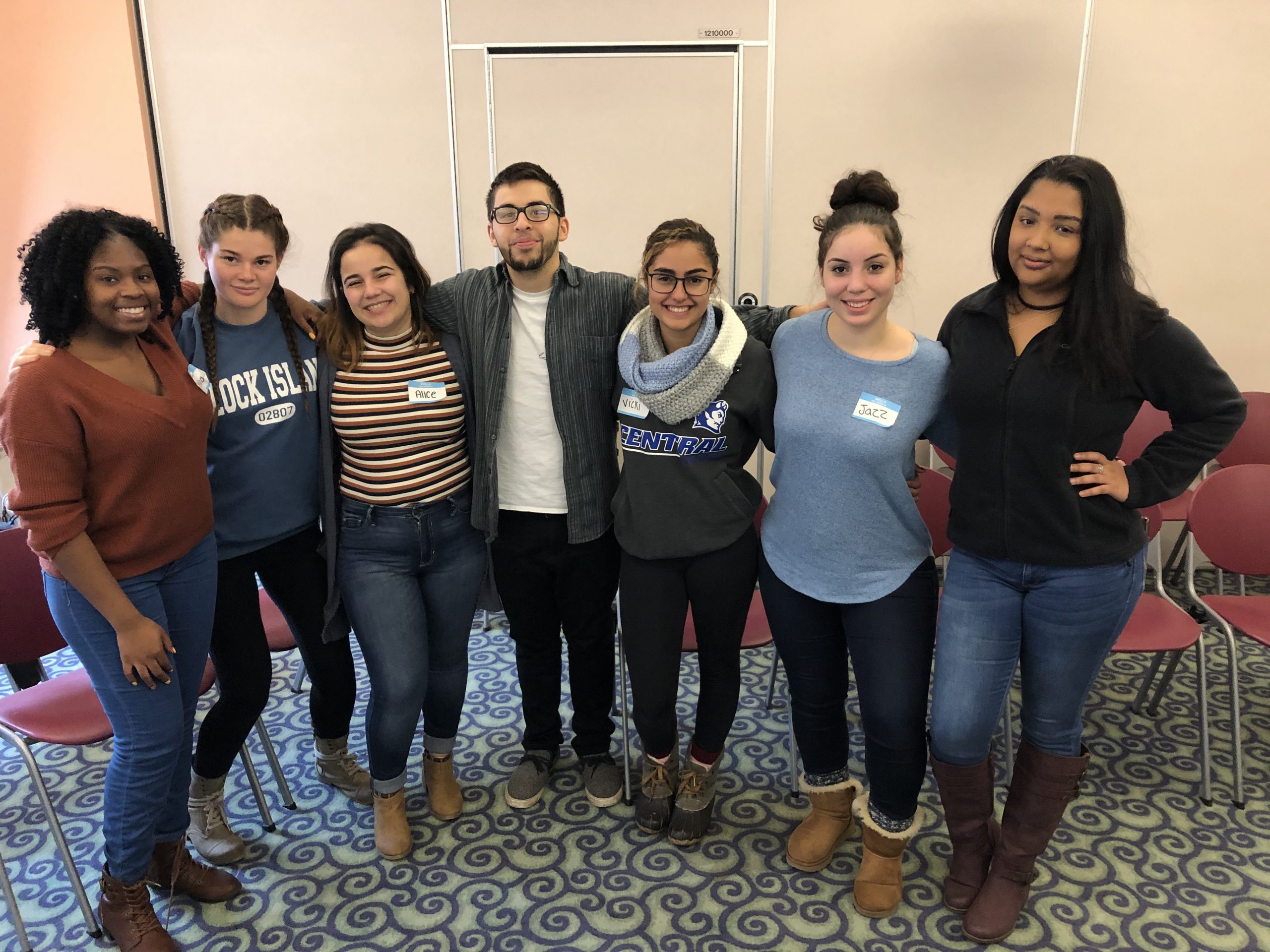
To address the academic and nonacademic barriers unique to first-generation students and students of color, Central Connecticut State University (CCSU) developed an innovative peer-coaching initiative. Success Central is designed to identify those barriers to retention and graduation and support students in underrepresented groups by enhancing their sense of belonging and shoring up their opportunities to succeed. The mentorship program is available to students during their first two years at the university. By doing so, CCSU is working to buck a troubling trend revealed by the Beginning Postsecondary Students Longitudinal Study (Cataldi, Bennet, & Chen, 2018): Student persistence after three years of enrollment for first-generation students is 67%, compared with 86% for students who have a least one parent who earned a bachelor’s degree.
Success Central was created by Dr. Reginald Simmons, a professor in CCSU’s Department of Criminology and Criminal Justice. After reviewing enrollment data, he learned that criminal justice was the most popular CCSU major for Latinx students and the second most popular among Black students. These same student populations also had lower graduation rates. Simmons, who is also a trained psychologist, began exploring peer-mentoring programs that stood out as promising practices for all students but particularly for first-generation students and students of color. During this process, he came across the college life-coaching model and found that because it focused on helping the whole student, it had demonstrated success in supporting student retention and increasing graduation rates.
Based on his research, Simmons developed a program model where student peer mentors would be trained in college life-coaching techniques to support underrepresented students in various areas. Studies have indicated that first-generation students who work longer hours and have more family responsibilities benefit from peer support because they are less likely to be involved on campus and ask for help. In Success Central, mentors provide mentees with time-management and study tips, inform them of and direct them to resources, help them balance life demands and classes, assist them with gaining experience in their major, and support them in socialization. Through this program, which is free to students, CCSU supports first- and second-year students in their academic journeys toward graduation and social mobility.
The Methodology
Success Central relied on university grants in its initial years that supported the developmental phases of the coaching program. Simmons was awarded an innovation grant through CCSU’s Office of the Provost when the program was initially proposed in 2014. The grant was renewed in successive years as the program and its potential gained momentum. To build the foundation for Success Central, Simmons reached out to a director of advising at another university who developed and managed a program with a similar well-designed model that had promising outcomes and data. The director developed a protocol that trained chosen junior and senior students to use life-coaching techniques in their mentoring relationships. As a result, Simmons established Success Central, which he managed through the Department of Criminology and Criminal Justice. It is now a university-wide intervention based in the Provost’s Office for Academic Affairs. Dr. Simmons and his team select, train, and supervise the mentors.
Fundamental to Success Central is its cohort of mentors and their training. At first, mentors were student volunteers who considered Success Central a service-learning opportunity. In its third year, Success Central hired students as mentors to provide a peer-coaching experience. By 2019, some colleagues suggested creating a class where the mentors could receive more extensive training and supervision in the research-based model, including how to handle a caseload and maintain proper case notes. Titled “First-Year Experience: Peer Leadership Seminar 301,” this class was used to recruit mentors who tend to be juniors and seniors from ethnically diverse backgrounds. By taking this class, they earn college credit and gain valuable hands-on experience supporting their peers at CCSU. As a result, the program increased from eight mentors serving 60 students to an average of 24 mentors serving up to 170 students per year. To effectively manage this expansion, Dr. Simmons created a senior management team that consisted of a mentor team leader and senior mentors. They assist Dr. Simmons in the training, oversight, and supervision of the mentors and are experienced, exemplary peer mentors—and active students themselves.
The CCSU students selected to be peer mentors are trained in college life coaching, a theory-based intervention that boosts student success in higher education. As they model for mentees the many ways to deal with the challenges they may be facing, the mentors are supervised by the senior management team, which assesses their coaching and makes recommendations for improvements. Through this process, the mentors and mentees are expected to establish a meaningful relationship using the following phases of Success Central College Life Coaching:
- Building a connection: Establishing a rapport between the mentor and mentee is critical to the completion of the Success Central program. The mentor meets biweekly or weekly with the mentee for 30-minute sessions. Phone and text conversations are scheduled as needed.
- Collaboration: During these sessions and conversations, the mentee can develop short- and long-term goals they want to accomplish, including sharing academic plans and addressing financial difficulties and family obligations.
- Reflection: At this stage, the mentee is encouraged to reflect on their progress and successes. The peer coach uses open-ended questions to determine what has worked for mentees in the past, for example, by focusing more on their strengths and prior success dealing with challenges.
- Action: The mentee commits to complete small steps toward reaching their goals while working with their mentor to identify what might prevent them from doing so. During the subsequent sessions, the mentor and mentee review the mentee’s outcomes to determine if they completed their action steps and adjust as needed.
This approach seeks to address and respond to the root causes of student attrition among underrepresented student populations and increase their retention and graduation rates.
Matching mentors with mentees evolved as well, which helped expand Success Central. Prior to 2019, Simmons manually paired mentors with mentees, which became a labor-intensive endeavor, so he decided to pursue a cross-departmental collaboration with CCSU’s Computer Science Department. A computer science instructor worked with his graduate-level software engineering class to create a web-based application that partially automated the matching process based on key matching criteria. Later, an undergraduate computer science class added to the application the ability to generate session notes. The application’s functionality has made the matching process more feasible.
The Impact
Since 2014, Success Central has experienced several positive outcomes. During its first two years, the coaching program targeted second-year Black and Latinx students. In its third year, Success Central expanded to serve all first-generation students in their first and second years at CCSU.
Success Central Demographics (2019-20 to 2022-23)
| Male | Female | Other | First-Gen |
| 204 | 357 | 6 | 55% |
| Black/AA | Hispanic | Latino/a | White | Asian | Pacific-Islander |
| 133 (23.5%) | 25 (4.4%) | 17 (3%) | 232 (41%) | 25 (4.4%) | 1 |
Data from recent studies also has shown that students in Success Central experienced 5% to 20% higher retention rates than their nonparticipating peers. This is achieved through the one-on-one relationships between the mentors and mentees that are action-oriented and supportive. Prior studies have demonstrated promising results with first-generation students, students of color, first-year students, as well as students who vary in their residential status (residential versus commuter).

Key Takeaways
For Success Central to be effective and rooted in the campus community, it has needed buy-in from administration, faculty, staff, and students. Grants approved by the Provost’s Office for Academic Affairs provided the seed money for the peer-coaching program. Success Central strategically recruits students to be mentors and coaches because of the tremendous impact they have on mentees’ lives. The program’s mentorship training requires Success Central to relate to various campus services at CCSU so the mentors can share pertinent services with their mentees. In addition, Success Central seeks to collaborate with faculty to address student issues. Data collection is essential to demonstrating the value of the program. From the beginning, building a process for collecting data is important.
For more information on Success Central, please contact Dr. Reginald Simmons at simmonsred@ccsu.edu.
“What we have shown with Success Central is that we are positively impacting student retention, but also their perception of their college experience and their academic skills, how they feel about themselves, and their ability to be successful in college. We do not want students just to squeak by. We want them to do well; we want them to be thriving students, who [feel] they belong at the institution, so they can graduate with an incredibly positive sense of themselves that they can take out into the world and be successful. We are also helping produce equitable outcomes and close the equity gap between first-generation students and their counterparts. We want to support first-generation students and students of color [so they] have an equitable opportunity to succeed.”
Dr. Reginald Simmons, founder and supervisor of Success Central and professor and chair of CCSU’s Department of Criminology and Criminal Justice
“Success Central became an integral part of my college career in my sophomore year of college. As a first-generation college student, navigating the new experiences and ventures of being a college student proved to be a challenge for me. I reached out to Success Central for a mentor after my first year and the trajectory of my college career successes took a turn for the absolute best.
“Within one year of being with the Success Central mentoring program, my cumulative GPA went from 3.0 to 3.34, and I continued to excel through the remainder of my college career. I had the pleasure of becoming a peer mentor in my junior year and a senior peer mentor my senior year. Being a part of this team was beneficial to not only our mentees but the mentors as well. During weekly meetings, we had the opportunity to check in with mentors on how their performance was with classes. It was within these meetings that I found my desire to work in community development, further launching me onto my current career path.
“The Success Central program offers specialized mentoring to students year after year, giving them the proper tools and assistance to pursue their dreams at Central Connecticut State University. I went into the program my sophomore year with what felt to be empty hands and left with new resources, acquired skills and a new outlook that will last me a lifetime.”
Victoria Pasión
